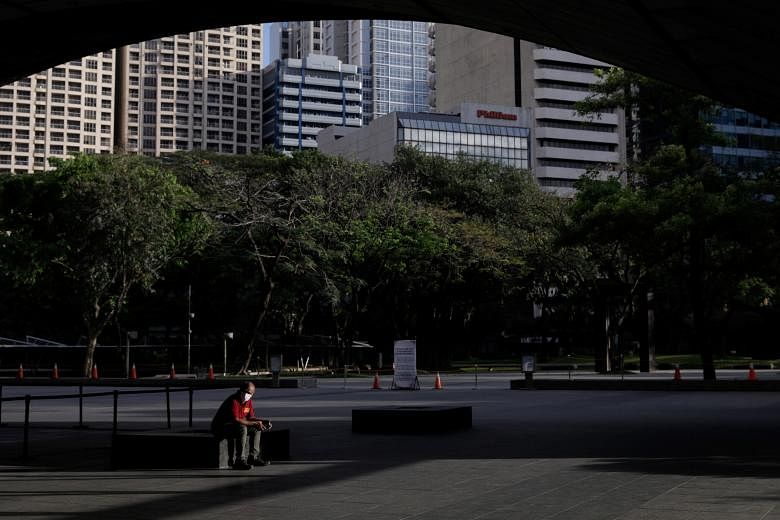MANILA (BLOOMBERG) - Airports and roads have been emptied by the coronavirus pandemic but the Philippines will keep building them, banking on a US$160 billion (S$226.96 billion) infrastructure plan to revive an economy slammed by the outbreak.
An economic stimulus package is being prepared that will include major funding for infrastructure, said Secretary Vince Dizon, President Rodrigo Duterte's adviser on key projects.
The government is reviewing 4 trillion-pesos (S$112 billion) worth of projects it earlier listed as priorities to include those with high and immediate economic impact, he said.
"There is a greater sense of urgency in getting the economy back on track," Mr Dizon said in a video interview. "As we transition to the new normal, we've got to catch up, and infrastructure will be key."
Economic managers are pushing to accelerate the building plan after the Philippine economy shrank 0.2 per cent in the first quarter - its first contraction since 1998 - as the government imposed a lockdown to halt the spread of coronavirus.
The central bank has taken the lead in providing stimulus to the economy amid the virus outbreak, cutting the policy rate and lenders' reserve requirement ratio. Governor Benjamin Diokno has recently signalled he's ready to pause, as these steps already provide sufficient buffers for the economy.
The infrastructure push will help speed up economic rebound in 2021, but won't be enough to prevent a "meaningful contraction" this year, said Bank of the Philippine Islands lead economist Emilio Neri.
"The likelihood of returning to full capacity in the second half is quite low at this point."
There will be challenges, however. The Philippines' infrastructure lenders such as Japan and China are also facing economic downturns from the pandemic.
The Philippines is confident these countries, as well as multilateral agencies, won't turn their backs on Mr Duterte's building plan, Mr Dizon said.
"They believe in the stability of our economy, and our ability to pay is very strong," he said.
Big businesses, whose finances have taken a hit from the outbreak, may have to be convinced to continue projects. The government is open to offering them better terms and is still determined to start 100 key projects before Mr Duterte's term ends in 2022, Mr Dizon said.
Among the companies involved in the infrastructure plan are San Miguel Corp, which plans to build a 736 billion-peso airport north of Manila; Udenna Corp, which proposed a monorail in central Philippines; and a consortium of big conglomerates pitching to upgrade the capital's main airport.
Mr Dizon said the pandemic also revealed the Philippines badly needs health and digital infrastructure, which will be included in the revised list to be released this month.
"We need the private sector to step in," he said. "We're all facing this crisis together anyway. We've got to find a way to work together to make the infrastructure programme work."











